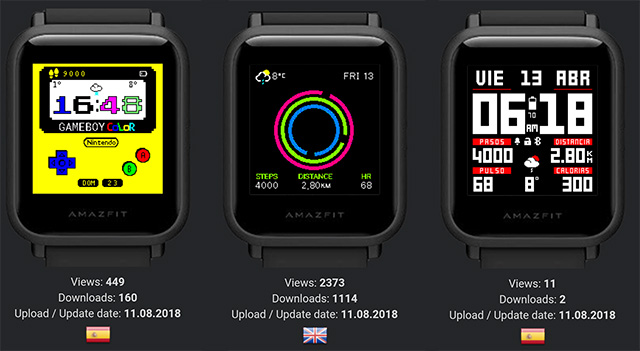
To address shortfalls in the ACFT evidence base, the Army decided to implement the ACFT as a general physical fitness assessment and provide a time-phased process for implementation.
#Mi fit time setting full#
The independent RAND study had four top-level recommendations for full ACFT implementation: Soldiers can volunteer to take any record physical fitness requirement within their exemption period without ending the exemption early.įrom more information, see Army Directive 2022-06 (Parenthood, Pregnancy, and Postpartum).

Soldiers may elect an early release from the P3T program and return to their regular unit physical readiness training. Modified activities within a Soldier’s limits, and as noted on the Soldier’s profile, are encouraged within the 180 days. After 180 days, Soldiers will return to regular unit fitness training. Soldiers are also exempt from other regular unit physical readiness training requirements (such as diagnostic physical fitness tests, timed distance runs, timed distance ruck marches, and order of merit list (OML)-generating physical requirements) outside the Pregnancy Postpartum Physical Training (P3T) program for 180 days after the conclusion of pregnancy. Soldiers are exempt from taking a record physical fitness test while pregnant and for 365 days after the conclusion of pregnancy, including Soldiers who experience perinatal loss. The change to a general fitness test does not preclude certain Army schools, such as Ranger, Sapper, or Special Forces Assessment and Selection, from requiring higher standards of physical fitness. We will continue to evaluate ACFT data and recommend changes when necessary to ensure the Army is a physically fit force.

Implementing the ACFT as a general physical fitness assessment also allows all Soldiers the ability to fairly compete for advancement in the Army. Norming for age and gender provides a more tailored assessment of an individual’s general level of physical fitness. Age and gender neutral standards fail to account for physiological differences between people of varied ages and genders. As a general fitness test, an age and gender performance-normed scale more accurately assesses individual physical fitness. The Army determined that a general fitness test best supports the Army’s efforts to sustain a fit and ready force, foster a fitness culture, and ensure fairness across the force. The Army expects Soldiers to pass the ACFT at rates similar to the APFT and will reassess standards over time. Additionally, the Army has established a governance structure with oversight by Army Senior Leaders to continue analysis and closely monitor the ACFT. The Army has commissioned additional analytic support from RAND and established a six-month delay before commencing record testing to further reduce any remaining risk to our Soldiers. The two-mile run minimum score was initially set at the 3rd percentile, however, based on observed data, it was adjusted to ensure that no subgroup will be required to complete the ACFT two-mile run faster than the old APFT run standard. Navy to set the baseline for the plank scale.

The remainder of the scales were set using an even distribution of observed Soldier performance. Similarly, the minimum passing score (60 points) for the MDL, SPT, HRP, and SDC was set at the 5th percentile.

The maximum (100 points) was set at the 96th percentile of performance within each age group and for each event. The new age and gender performance-normed scoring scales were developed using the data from the nearly 630,000 ACFT scores, historic performance rates from the APFT, and scoring scales from other branches of the U.S. Instead, the plank was determined to provide a similar testing experience and more accurately assess core strength for all Soldiers. The new scoring standards were developed from historic performance rates and more accurately assess individual physical fitness goals reflective of age and gender categories.The leg tuck was removed after RAND concluded the exercise did not correctly measure core strength in all Soldiers. In addition, the Army will establish an ACFT governance body to continue to assess testing data and provide a comprehensive analysis, with any recommended future modifications to the ACFT, in April 2023. Additional changes include the plank as the sole core-strength event and the addition of the 2.5-mile walk as an alternate aerobic event. The test now includes performance-normed scoring standards, scaled to age and gender. The Army will implement a revised ACFT, starting on April 1, 2022, that will include several differences based on 630,000 sample ACFT test scores, the RAND independent assessment and feedback from Soldiers.


 0 kommentar(er)
0 kommentar(er)
